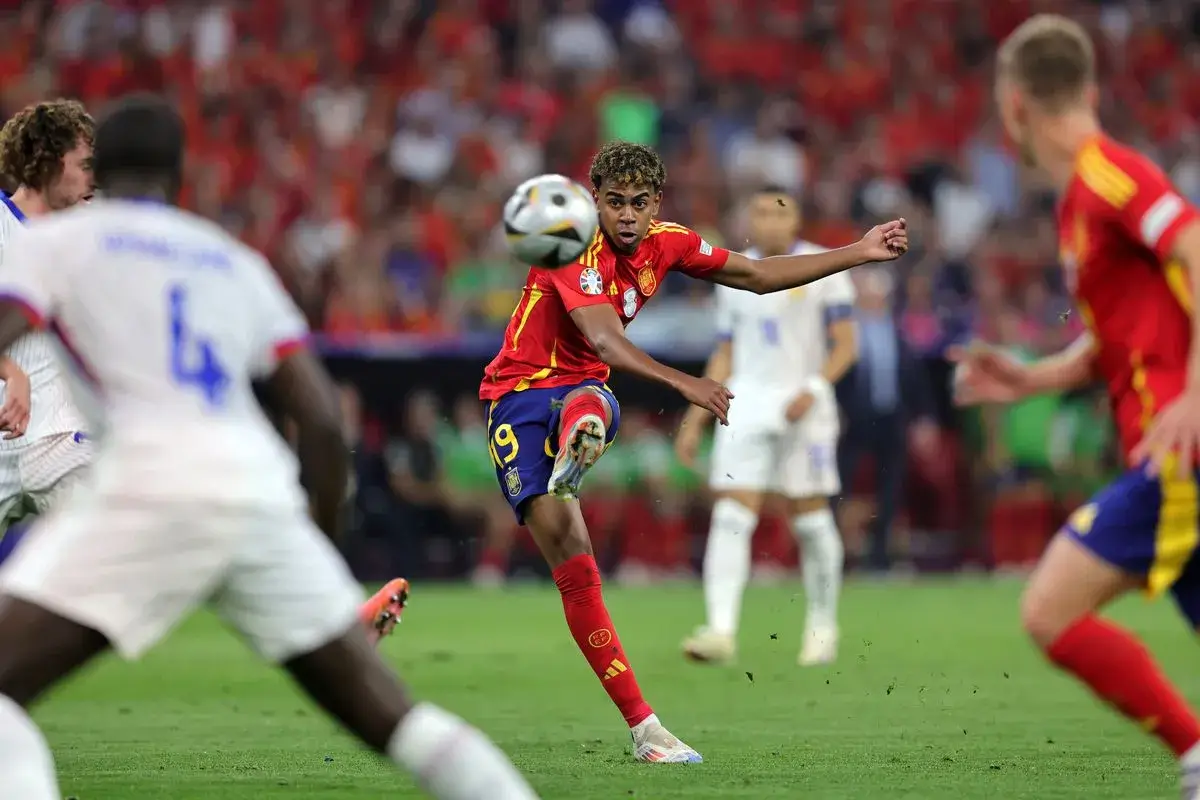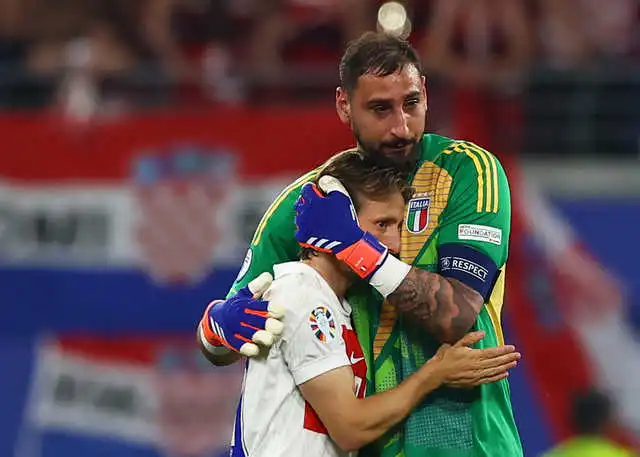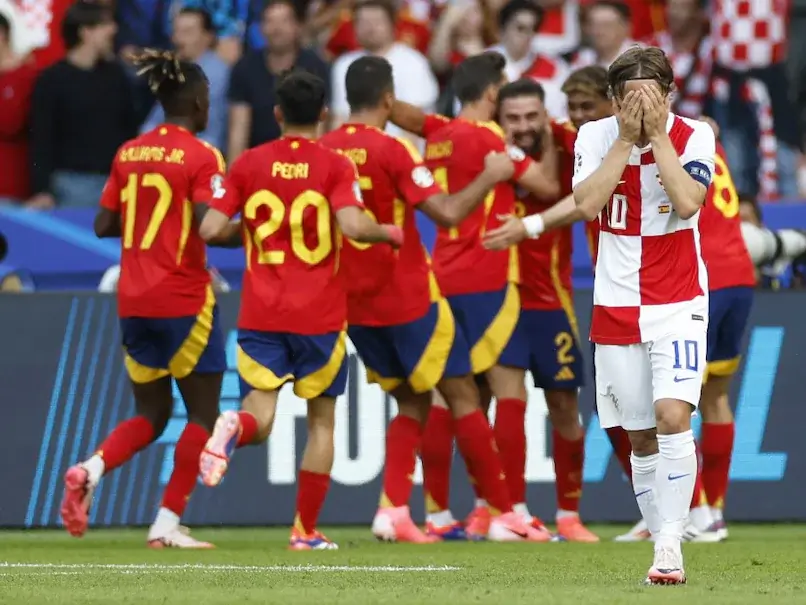Expectations and Resilience in Sports - EURO 2024 Mind Games
Mind Games: Sport Psychology at EURO 2024
As EURO 2024 progresses, managing expectations becomes crucial for both players and coaches. High expectations can motivate athletes to strive for excellence, while unrealistic expectations can create undue pressure and anxiety. It's important for coaches to set realistic, achievable goals and to communicate openly with their players to align expectations. Encouraging athletes to focus on their personal growth and the process rather than solely on the outcome can foster a healthier, more productive mindset.
With the tournament already underway, the importance of managing expectations is more evident than ever. Teams must navigate the highs and lows of the competition, maintaining a balanced perspective. By focusing on day-to-day improvements and celebrating small victories, athletes can build momentum and confidence. Coaches should emphasize resilience and adaptability, helping players to stay mentally flexible and prepared for any challenges that arise.
By managing expectations effectively, teams can enhance their performance and navigate the high-pressure environment of the European Championship with greater resilience and confidence. This approach not only improves individual performance but also fosters a cohesive, supportive team dynamic essential for success in such a competitive tournament.
How Expectations Influence Performance
Positive expectations for success have been shown to produce significant effects in various realms of life, including sports. When athletes expect to beat a tough opponent or successfully perform a difficult skill, they can achieve exceptional performance by overcoming psychological barriers.
Your expectations of others impact not only your behavior but also the feelings and behaviors of those around you. This phenomenon is particularly evident in sports, where a coach's or teammate's confidence in an athlete can boost the athlete's own self-belief and performance.
Self-efficacy, the perception of one’s ability to perform a task successfully, is a situation-specific form of self-confidence. Psychologist Albert Bandura developed a conceptual model of self-efficacy, linking confidence and expectations. Bandura later redefined self-efficacy to include beliefs about individuals’ capabilities to produce performances that lead to anticipated outcomes. This concept evolved into self-regulatory efficacy, which emphasizes one's ability to overcome obstacles or challenges to achieve successful performance.
Fostering positive expectations and self-efficacy can lead to improved performance and greater overall success, as athletes feel more capable of meeting and exceeding their goals.
🌟 Coaches' Expectations and Athletes' Performance:
Coaches' expectations can impact their behavior toward athletes, which in turn affects athletes' performance and behavior. High expectations can lead to more attention, better feedback, and more opportunities, enhancing performance.
💪 Athletes' Expectations and Self-Confidence:
Athletes' own expectations can shape their self-confidence. Believing in their ability to succeed can boost motivation and performance. Conversely, low expectations can lead to decreased effort and performance.
Practical Strategies to Manage Expectations
🎯 Set Realistic Goals:
Teams and players should set specific, measurable, achievable, relevant, and time-bound (SMART) goals. For instance, a player might focus on improving their passing accuracy by 10% during the tournament.
🧠 Focus on the Process, Not Just the Outcome:
Emphasize daily training and incremental improvements rather than fixating solely on winning the championship. This approach reduces pressure and fosters a growth mindset.
🗣️ Positive Self-Talk and Visualization:
Athletes use visualization techniques to imagine every detail of their performance, which helps in setting positive expectations.
📢 Open Communication:
Coaches should regularly communicate with their players to align expectations and provide constructive feedback. For instance, Gareth Southgate’s open and supportive communication style has been pivotal for England.
🤝 Embrace a Support System:
Encourage players to lean on teammates, coaches, and staff for support. The sense of community and a safe psychological environment within teams embrace a strong support system.
Resilience and Grit in Sports
Resilience and grit are critical psychological traits that enable athletes to persevere through challenges, setbacks, and the pressures of high-stakes competitions like EURO 2024.
Resilience is a set of skills—as opposed to a disposition or personality type—that makes it possible for people to not only get through hard times, but also to thrive during and after them. However, there is not just one prescription that works; people need to find what works best for them.
Resilience is the ability to bounce back from adversity, while grit is the sustained effort towards long-term goals.
Galli and Vealey (2008) interviewed athletes about their experiences with resilience in sports. Key points included:
Coping Strategies: Athletes used various coping strategies to deal with unpleasant emotions such as sadness, frustration, hurt, embarrassment, anger, and confusion.
Mental Toughness and Personal Resources: Determination, competitiveness, commitment, persistence, maturity, and optimism were crucial for successfully coping with adversity.
Sociocultural Influences: Social support (or lack of it) was critical for resilience.
Positive Outcomes: Despite the unpleasantness of coping with adversity, athletes experienced positive outcomes such as gaining perspective, motivation to help others, learning, and general strengthening from adversity.
Morgan, Fletcher, and Sarkar (2013) expanded on the notion of resilience by investigating it in five elite sport teams. They defined team resilience as a “dynamic psychosocial process which protects a group of individuals from the potential negative effect of the stressors they collectively encounter.” Their findings revealed four main resilience characteristics of elite sport teams:
Group Structure: Including formal structures (e.g., coaches, captains, managers), positive group norms and values, and clearly defined communication channels.
Mastery Approaches: Effective behavioral responses, managing change effectively, and having a learning orientation.
Social Capital: Social support, positive interpersonal interactions, and strong group identity.
Collective Efficacy: Mastery experiences, group cohesion, and positive communications after failure.
Practical Strategies to Build Resilience and Grit
🌱 Develop a Growth Mindset:
Teach players to view challenges as opportunities for growth. Carol Dweck’s research on growth mindset highlights how believing in the ability to improve fosters resilience.
🧘 Cultivate Mental Toughness:
Implement mental toughness training programs that include stress management techniques, such as mindfulness and controlled breathing.
📝 Encourage Self-Reflection:
After each game, encourage players to reflect on their performance, identify areas for improvement, and set new goals. This practice helps players learn from their experiences and build resilience.
🔄 Promote Consistency and Routine:
Establish consistent training routines and pre-game rituals to build discipline and stability.
🛠️ Provide Constructive Feedback:
Constructive feedback helps players understand their strengths and areas for improvement. Provide specific, actionable feedback that motivates players to push through challenges.
Real-Time Event: How will Croatia respond after the 3-0 defeat against Spain?
Luka Modrić
Luka Modrić’s journey to becoming one of the best midfielders in the world exemplifies resilience and grit. Despite facing significant challenges early in life, including displacement due to war, Modrić’s unwavering determination and hard work propelled him to the top. His ability to manage expectations and remain resilient in the face of adversity is a powerful example for aspiring athletes.
Conclusion
Beliefs, expectations, resilience, and grit are fundamental aspects of sport psychology that significantly impact athletic performance. By employing practical strategies to manage expectations and build resilience, athletes can enhance their mental toughness and perform at their best in high-pressure environments like EURO 2024.
Stay tuned for our next post, where we will delve into performing under pressure and coping strategies in sports, exploring the importance of it in a short and demanding competition like the European Championship. 🌍⚽
Weekly Challenge: Spot Resilience and Manage Expectations 📺✨
Challenge: Until next week Wednesday (26th), watch a EURO 2024 match and focus on how players and coaches manage their expectations and demonstrate resilience.
Steps to Complete the Challenge:
1. Choose a Match: Pick any EURO 2024 match to watch this week.
2. Observe: Pay close attention to moments when players face challenges or setbacks. Notice how they react and what strategies they use to stay focused.
3. Reflect: Think about how the players’ actions and attitudes can be applied to your own life. How do they manage their expectations? How do they bounce back from adversity?
4. Share: In the comments via LinkedIn, share one example of resilience or expectation management you observed during the match. Explain how it inspired you or what you learned from it.


 9
9





